On Christmas day we had several airmen join us for our Christmas celebration. A couple of the airmen had never thought seriously about the possibility that Christianity could offer them the best possible life. As we talked, I could tell that the idea of God coming to earth, dying for their sin, and offering them real life, an abundant life, was just too hard for them to believe. As we talked, I was aware of how badly I wanted them to know Jesus like I know Him, because I deeply believe that Jesus and the Christian faith
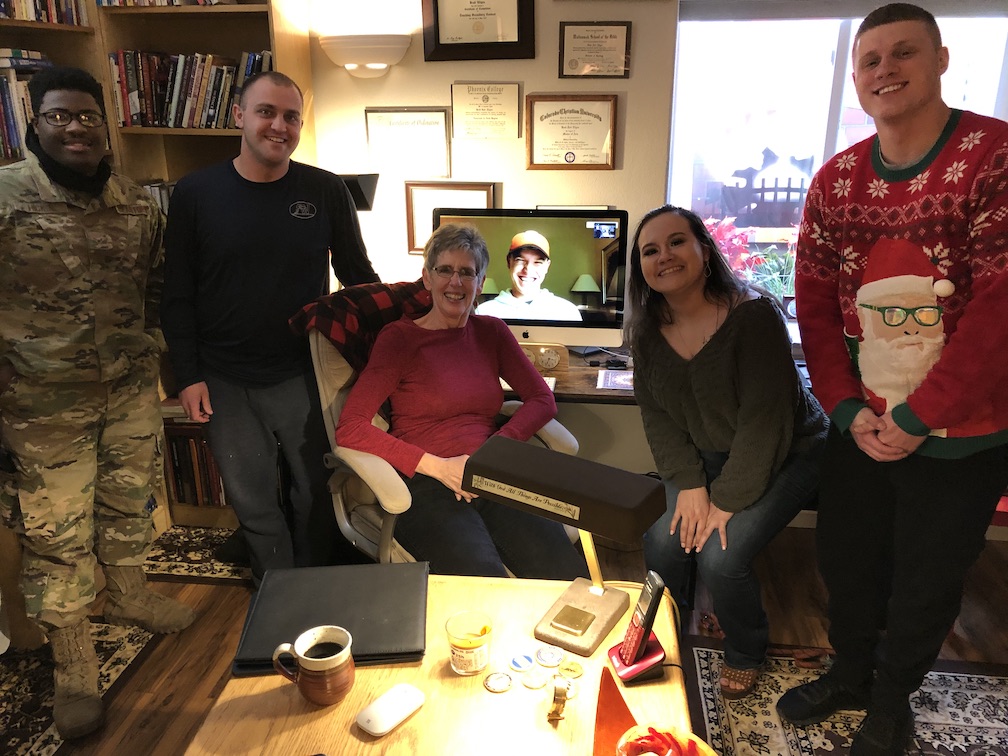 offers the best possible life. It occurred to me that encouraging them to participate in some rituals around Christmas, and what we celebrate, might be helpful to them.
offers the best possible life. It occurred to me that encouraging them to participate in some rituals around Christmas, and what we celebrate, might be helpful to them.
Rituals, a Short History
There was a time when it was widely believed that rituals had the power to change reality. Many people believed that by saying certain words or participating in specific actions, the gods (or God) could be influenced, and the future changed to produce a favorable outcome. However, science has cast serious doubt on the efficacy of any ritual to alter reality. Today in the U.S. most adults view any ritual as a practice that is generated from ignorance, fear, or trust in magic. I don’t believe that God is going to change His mind or alter reality because I participate in a ritual, but I think rituals are important for reminding me of what I believe, helping me keep important commitments and keeping me mentally healthy.
In our modern society, rituals are often viewed as outdated, irrational, a waste of time or just weird. But research by Francesca Gino and Michael Norton, which was published in Scientific, shows that rituals help us cope with loss, connect with the past, and finish well.[1]
Rituals and The Abundant Life
There are many things I have received from the Christian faith which have given me this abundant life that I spoke with the airmen about. One of them is Christmas rituals. I know that the Christmas holiday which is celebrated in the U.S. is a mix of pagan traditions from Europe, capitalism, and materialism. I also know that the Christmas tree does not have Christian origins and, although Santa Claus might have a Christian origin, the Santa Claus which is worshiped in the U.S. bears little resemblance to Saint Nicholas. Christmas in America is now referred to as “the holidays,” and almost all traces of Christmas being about Jesus are absent from our culture. However, Christmas rituals have power to center our attention on who Jesus is, what He has done, and what He promises to do in the future. Christmas rituals have always been a big part of the Ellgen Christmas celebration. Here are some of the rituals we have put into our lives.
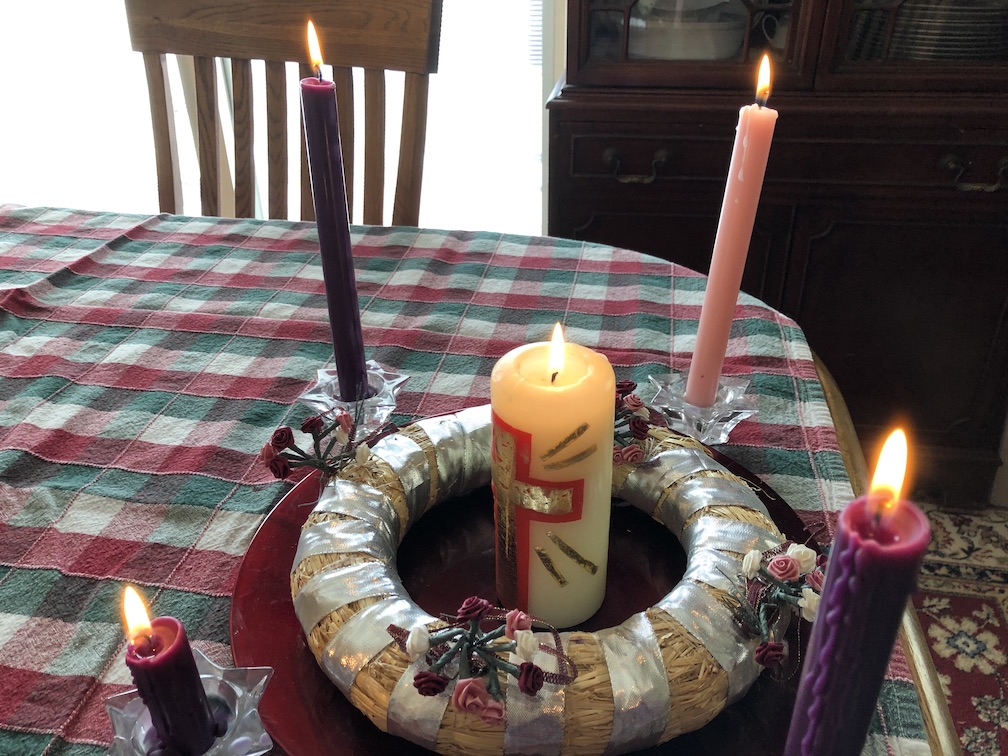
Examples from Our Christmas Rituals
Every year we have an advent wreath in our home. The wreath is a circle of three purple candles, one pink candle and a white candle in the middle. The wreath symbolizes the passage of the four weeks leading up to Christmas. This year we lit the appropriate number of candles every night after dinner, read a selected passage from the Bible, and prayed thanks to God for the gift of Jesus. We lit the white candle on Christmas morning and read the Christmas story from the second chapter of Luke. The advent wreath is a ritual which keeps us focused on Jesus, reminds us of our God’s love for us, and keeps us from getting too distracted by the commercialism of the season.
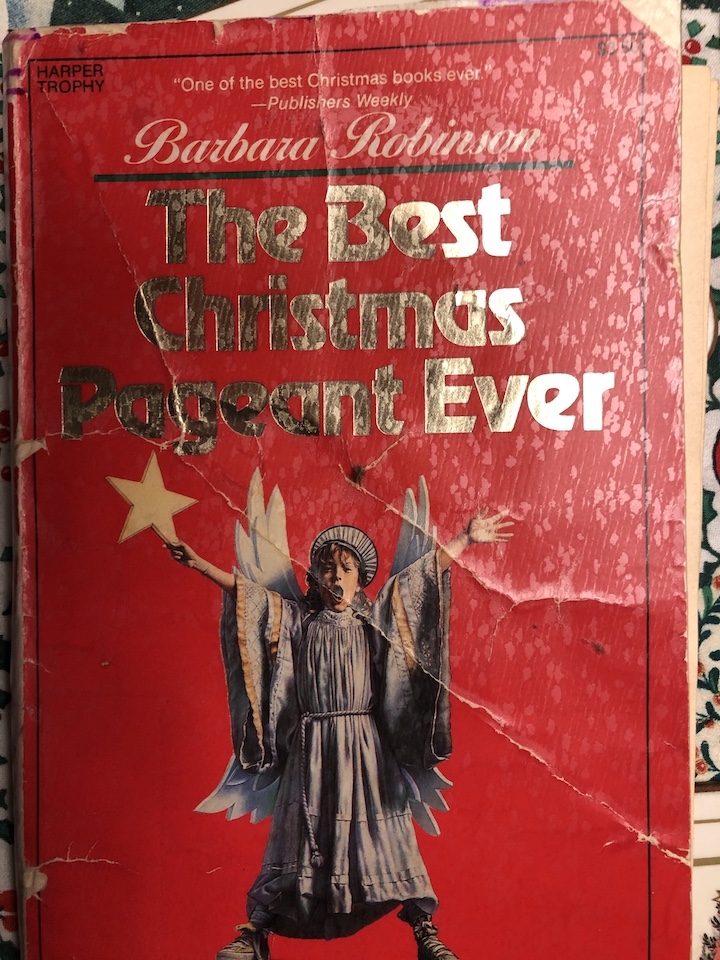 We always read The Best Christmas Pageant Ever by Barbara Robinson. We started reading this to our kids in 1989 when they were nine and eleven years old. We always read it out loud, and we always cry when we read the last chapter. The last chapter makes us cry because we are so moved by the power of the Christmas story. Even though we have read the book over 40 times and know the ending, the words are able to bypass our minds and speak straight to our hearts. The book reminds us of what it would be like to hear the Christmas story for the first time and how miraculous it was that God came to Earth. Our kids are adults now, and they read this story to their kids. The story not only reminds us of what Christmas is all about, it also connects us to our past, to our kids, and to our grandkids.
We always read The Best Christmas Pageant Ever by Barbara Robinson. We started reading this to our kids in 1989 when they were nine and eleven years old. We always read it out loud, and we always cry when we read the last chapter. The last chapter makes us cry because we are so moved by the power of the Christmas story. Even though we have read the book over 40 times and know the ending, the words are able to bypass our minds and speak straight to our hearts. The book reminds us of what it would be like to hear the Christmas story for the first time and how miraculous it was that God came to Earth. Our kids are adults now, and they read this story to their kids. The story not only reminds us of what Christmas is all about, it also connects us to our past, to our kids, and to our grandkids.
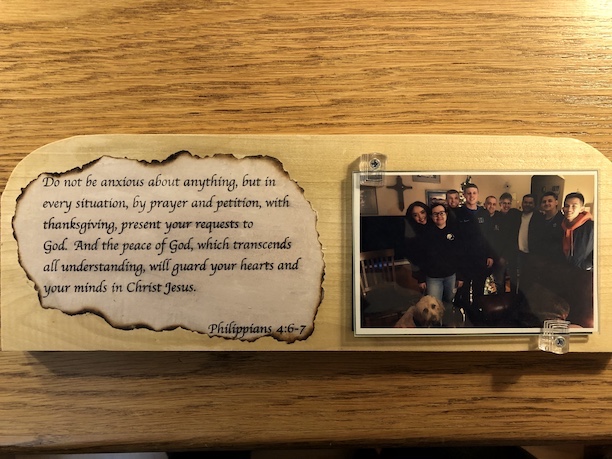
We always share Christmas with those around us who are away from home, and we work to give each person who is with us meaningful gifts. Debbie gives the gift of hospitality by cooking a really good meal and making sure our house is clean and ready for guests. I cut a nice piece of wood, paste a Bible Verse on it, attach a group photo, and write the date on the plaque. We give everyone who is with us a stocking with very practical gifts which every airman needs. Although the gifts that we give have gotten more refined over the years, we started this ritual in 1976 when we were in Japan and every year we are reminded of that first Christmas we spent together away from home.
Besides Christmas rituals, we have also created a farewell ritual when people move, or when airmen have a permanent change of station (PCS). For the person who is leaving we offer words of encouragement and a gift, so that they have a physical reminder of their time with us.
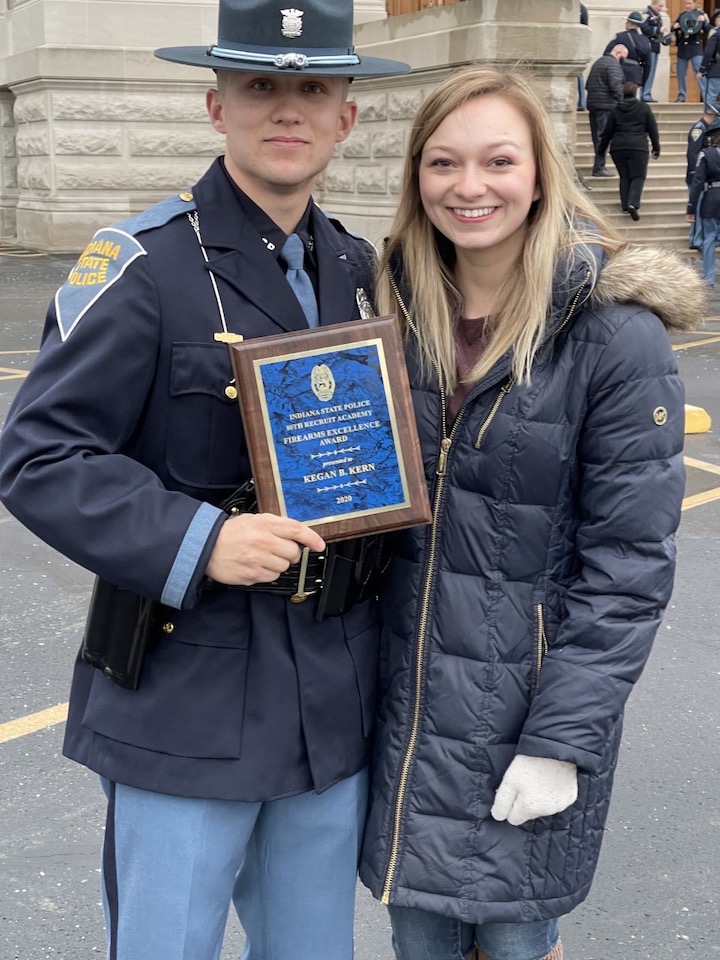 We have also made it a point to participate in the cultural rituals of our culture: graduations, birthdays, weddings, baptisms and funerals. This December we made plans to travel to Indiana to celebrate with a former airman who graduated from the Indiana State Police Academy. We were disappointed when we had to cancel our plans because of the pandemic.
We have also made it a point to participate in the cultural rituals of our culture: graduations, birthdays, weddings, baptisms and funerals. This December we made plans to travel to Indiana to celebrate with a former airman who graduated from the Indiana State Police Academy. We were disappointed when we had to cancel our plans because of the pandemic.
The Power of Rituals
Last week at our happiness conversation, an airman asked how I learned about happiness at such an early age before there was any science for it. I LOVED that question; it is one that I have thought about a great deal. The answer is short; I learned it at church and Bible School. It was the church that taught me how to celebrate Christmas, the purpose of a wedding, and how to celebrate and value other people. The church has not always had a proper perspective on rituals. There have been times when rituals were too important and thought to be efficacious. In reaction to this over-emphasis on rituals, many churches did away with all rituals. I would never suggest that I have found the perfect balance to incorporate rituals into my life, but I am thankful for those rituals we have incorporated into our lives, and our ministry, that continue to point us to God and to the people in our lives.
You don’t need to practice the same rituals we do. But if you’ll set up a ritual that reminds you of how God came into the world as a tiny child, you can let some of the stress of preparing for the holidays drop away. Christmas is an easy time to add rituals into our lives because we are familiar with many of them from our past, and they can serve as a springboard to other rituals that focus us on God throughout the year.
[1] Gino, F. & Norton, M. (2013). Why RItuals Work. Scientific American.